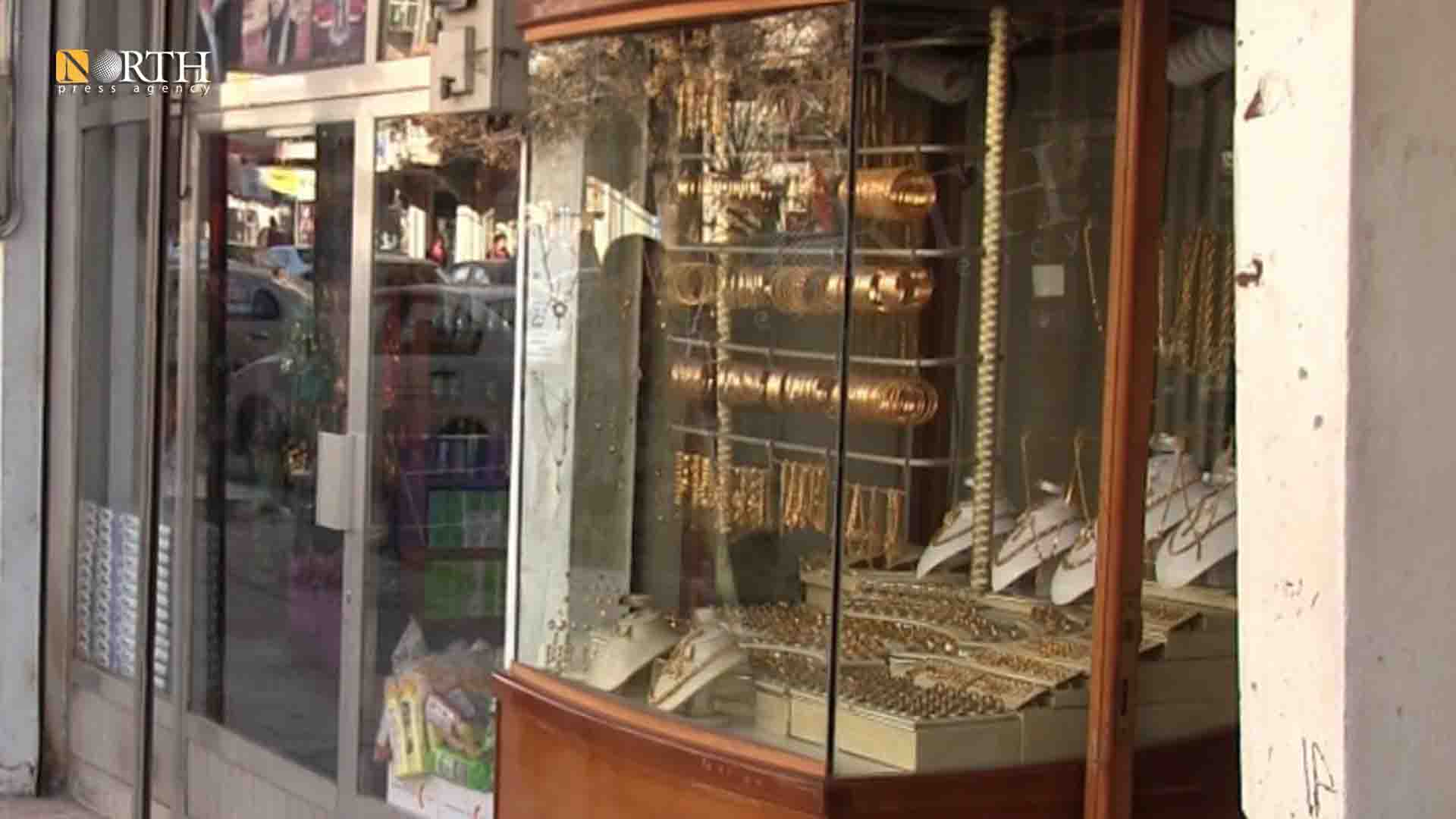New restrictions on gold trading in Syria’s Homs ensures dealers’, buyers’ rights
HOMS, Syria (North Press) – New procedures issued by the Association of Crafting and Jewelers have sparked a debate between goldsmiths and gold dealers in the city of Homs regarding the conditions of gold sales.
The association says that its new decision aims to preserve the rights of the buyer, as well as to ensure the right and legality of gold’s sale by the jeweler.
The new conditions include mandating viewing and checking the piece’s weight and shape by the buyer, in addition to signing two copies of an invoice, one for the seller and the other for the buyer, including the weight, price and caliber of the gold piece.
The craft association in Homs had received many complaints that sometimes reached the court system, according to members of the association.
Ammar Qarbu, a jeweler in Homs, considers the new mechanism as something positive which guarantees the right of the buyer and seller, in light of what he called “confusion and lack of legal control in the recent period.”
“I think with this, we will overcome a lot of familiar problems between seller and buyers,” Qarbu added to North Press.
Ghassan Jazmati, head of the goldsmiths union in Damascus, told the pro-government Thawra newspaper, “Some customers sometimes object to the weight of the piece, so the invoice and the customer’s signature are a guarantee of the jeweler’s right, while the citizen’s signature is a guarantee of his right to see the weight.”
With the implementation of the American Caesar Act sanctions, the Syrian pound collapsed, which affected markets in general and caused instability in the prices of some goods.
On Tuesday, gold prices in Homs reached 140,000 Syrian pounds (SYP) per gram of 24 carat gold, 128,000 SYP for a gram of 22 carat gold, and 122,000 SYP for a gram of 21 carat gold.
These prices do not include the fees of goldsmithing, which should be stipulated in the sale document according to the new decision.
The new reality has also led residents and money-holders to convert their savings from the Syrian pound to gold, in light of strict government measures that limit the circulation of foreign currencies.
Salim Khaled, a jeweler in Homs, revealed that gold dealers were storing the gold, which led to selling it at prices different from the official prices.
“When the price of gold was 115,000 SYP, its price on the black market was 150,000 SYP, which provided a double profit for the goldsmith,” he told North Press.
Khaled added that the new law would require the jeweler to fill out a bill that does not allow him to increase the price of the gold, and therefore there will be no profits as was the case before.
He believes that the gold dealers and sellers were not partners in something bad, because the one who is going to buy and store gold knows by default that he will make a profit when selling it after a year.

